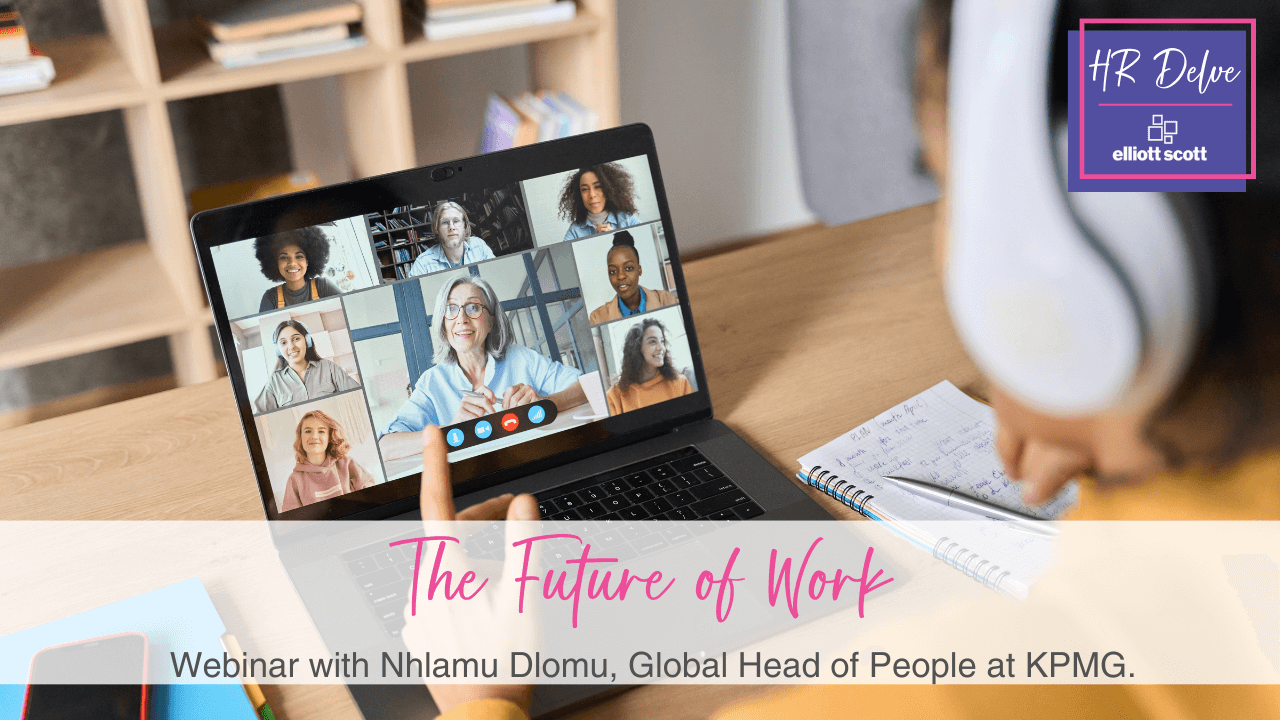Drop off your CV
We serve the global HR community through our offices located in Delhi, Hong Kong, London, New York, São Paulo and Singapore and have placed HR leaders in over 30 countries.
In the second session of our HRDelve series, we had the pleasure of talking with Nhlamu...

In the second session of our HRDelve series, we had the pleasure of talking with Nhlamu Dlomu, Global Head of People at KPMG.
We discussed the role of the HR leader to help boards and executive teams make the right decisions and achieve the right outcomes in an environment where there is not always a clear roadmap.
One significant strategy discussed was the use of core values as a guiding compass in making decisions when there are no clear answers. By establishing principles based on these values, organisations can provide a foundation for leaders to navigate uncertain ground. These principles include prioritising the safety and well-being of employees, ensuring transparency in communication, and taking responsibility as leaders.
Listening and Reflecting: Nhlamu highlighted the importance of active listening and understanding in challenging times. Rather than rushing to quick solutions, it is essential to ensure that a diverse set of voices is being engaged in meaningful conversations and reflection. This approach encourages organisations to find meaningful ways to respond to issues such as social justice, global crises, and other society-led challenges.
Creating a Moral Compass: Having a moral compass, rooted in the organisation's values, can guide decision-making even in the most challenging situations. Nhlamu shared an example of hosting a Global Values Week, which allowed employees to explore what these values mean in practical terms. To ensure that values remain more than just words on paper, Nhlamu highlighted the importance of embedding them in daily practices. This includes incorporating values into onboarding processes, performance management, decision-making frameworks, code of conduct, and recognition programs. By doing so, organisations can ensure that values become an integral part of their culture. Navigating complexity and uncertainty requires creating an environment that is value-based and integrating values throughout the organisation's processes. While it may be a continuous journey with trial and error, the core values provide a solid foundation for decision-making and leadership. By treating values as a "decision compass," leaders can make more ethical and value-driven decisions.
We then delved into the KPMG 2023 CEO Outlook, which KPMG conducts by interviewing over 1,300 CEOs from various industries. The primary concern for CEOs is geopolitical uncertainty with the ever-evolving global landscape presenting a significant challenge. In addition to geopolitics, CEOs are also preoccupied with the disruptive force of technology, from artificial intelligence to cyber threats, and the broader technological shift. Talent management is also a top consideration, with 64% of CEOs desiring a full return to the office in the next three years. A notable finding is that 87% of CEOs want to reward employees who return to the office with a pay increase and/or promotions. We discussed the importance of understanding employees changing habits and personal circumstances, and in addressing the balance between remote and in-person work we need to be guided by reason and logic. Some tasks are better suited for in-person collaboration, while others can be performed remotely. The role of managers in facilitating this balance was emphasised. Encourage a granular approach to understand the specific needs of different teams, roles, and individuals. Data, sentiment analysis, and open conversations were proposed as methods to facilitate this shift in thinking. Rather than reverting to pre-pandemic office-centric working models, we should focus on finding effective ways of working by leveraging technology and new insights.
Data-Driven Decision-Making: The importance of data in shaping decision-making was highlighted. Organisations should utilise a combination of internal and external data points to understand employee sentiments, movement, and the impact of different working models. Relying on industry benchmarks alone may not be sufficient. CEOs and HR professionals should work collaboratively, using data to build a compelling case for evolving work practices.
Diversity and inclusion: We continued the discussion with a focus on diversity and inclusion within organisations. CEOs are concerned about the slow progress of D&I initiatives, particularly at senior levels. A recent study by Blackrock suggests that gender parity in senior roles positively impacts financial performance, you can view the study here. Emphasising the importance of understanding diverse experiences and perspectives to make more informed decisions. We need to create environments that foster inclusion, as diversity alone is not sufficient; a sense of belonging is equally crucial.
In conclusion, this session emphasised the role of values-based leadership in guiding organisations through complex and uncertain times. By using values as a moral compass, actively listening, and embedding values in daily practices, organisations can better navigate the challenges of today's rapidly changing world. It is essential for C-suite leaders to embrace data, listen to employees, and evolve the way they work. The future lies in data-driven, inclusive, and flexible approaches, with HR professionals playing a pivotal role in guiding this transition.
To carry on the conversation, please contact me on LinkedIn at Kirstin Hunt or via email at kh@elliottscotthr.com.